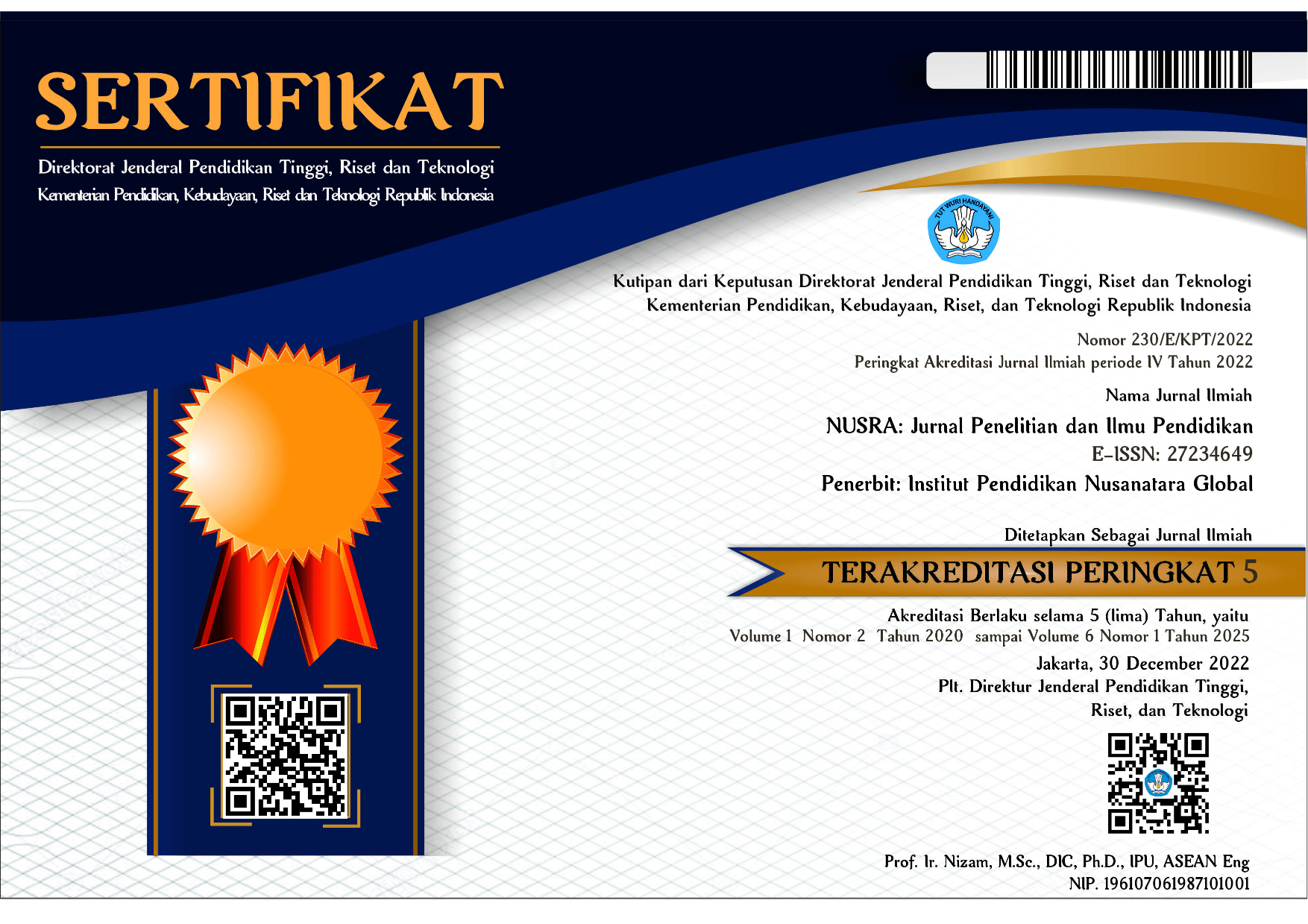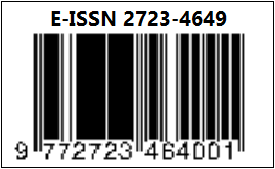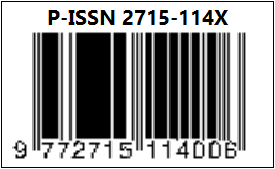IMPROVING ACCESS TO HIGHER EDUCATION FOR LOW-INCOME HIGH SCHOOL STUDENTS THROUGH PIP AND STUDENT’S MENTORSHIP: SCHOLARSHIP AWARDEE EXPERIENCES IN LOMBOK
DOI:
https://doi.org/10.55681/nusra.v4i2.804Keywords:
PIP, Students Mentorship, Low-income Students, Readiness, scholarshipAbstract
The low-income high school students culturally have had very challenging experiences to go to colleges or universities. As experienced by the participants, they tend to have more difficulties compared to the high-income school students. PIP (Program Indonesia Pintar) is financial aid in the form of cash, expanded access, and learning opportunities from the Indonesian government for students who come from low-income and vulnerable families to finance their education, to increase the number of education sustainability and to decrease the dropout rate from the primary school level to senior high school level in Indonesia. There are 31 students involved in this study which are 15 males and 16 females. These samples of the study were the recipients of the KIP-Kuliah, GenBi and campus scholarship from three universities in Indonesia. In collecting the information, the novice researcher did literature review and disseminated an online survey with open-ended questions to the scholarship recipients regarding their experiences before getting into and during study in the universities to provide evidence on the uses of PIP and the benefits of student’s mentorship. Besides, the researcher exploited sharp discontinuities in the program eligibility formula to identify and analyze the impact of the PIP and student mentorship for the low-income student outcomes at different level of study at the level of freshmen, sophomore, junior and senior at their universities.
Downloads
References
Berg, Gary A (2010) Low-Income Students and the Perpetuation of Inequality: Higher education in America. Great Britain: MPG Books Group, UK.
Bowman, Nicholas A et al (2018) Improving College Access at Low-Income High Schools? The impact of GEAR UP Iowa on Postsecondary Enrollment and Persistence. SAGE Journal. Educational Evaluation and Policy Analysis
Castlemen, et al (2015) Decision Making for Students Success: Behavioral Insight to Improve College Access and Persistence. New York: Routledge Taylor and Francis Group
Fack, Gabrielle, and Julien, Grenet (2015). ‘Improving College Access and Success for Low-Income Students: Evidence from a Large Need-Based Grant Program”. American Economic Journal: Applied Economics, 7 (2): 1-34
Jennifer, Mariman. (2012). The Impact of GEAR UP on College Readiness for Students in Low Income Schools. Journal of Education for Students Placed at Risk (JESPAR) 17(4): 234-246
John et al (2018) Public Policy and Higher Education Reframing Strategies for Preparation, Access, and College Success. New York: Routledge Taylor & Francis Group
Kezar, Adrianna (2011) Recognizing and Serving Low-Income Students in Higher Education An Examination of Institutional Policies, Practices, and Culture. London: Routledge Francis & Taylor Group
Landers, Kerry H (2018) Postsecondary Education For First-Generation and Low-Income students in the Ivy League Navigating Policy and Practice. USA: Palgrave Macmillan
Retnaningish, Hartini (2017) Program Indonesia Pintar: Implementasi Kebijakan Jaminan Sosial Bidang Pendidikan (Studi di Kota Kupang, Provinsi Nusa Tenggara Timur dan Kota Palembang, Provinsi Sumatera Selatan. Aspirasi Vol. 8 No. 2, Desember 2017
Rohaeni & Saryono (2018) Implementasi Kebijakan Program Indonesia Pintar (PIP) Melalui Kartu Indonesia Pintar (KIP) dalam Upaya Pemerataan Pendidika. Indonesian Journal of Education Management and Administration ReviewU.S Department of Education (2021).
GEAR UP accessed at 17 Nov 2021 UU Nomor 12 Tahun 2012 Badan Pusat Statistik (bps.go.id) accessed on 18 January 2022
Downloads
Published
How to Cite
Issue
Section
License
Copyright (c) 2023 NUSRA: Jurnal Penelitian dan Ilmu Pendidikan

This work is licensed under a Creative Commons Attribution-ShareAlike 4.0 International License.














